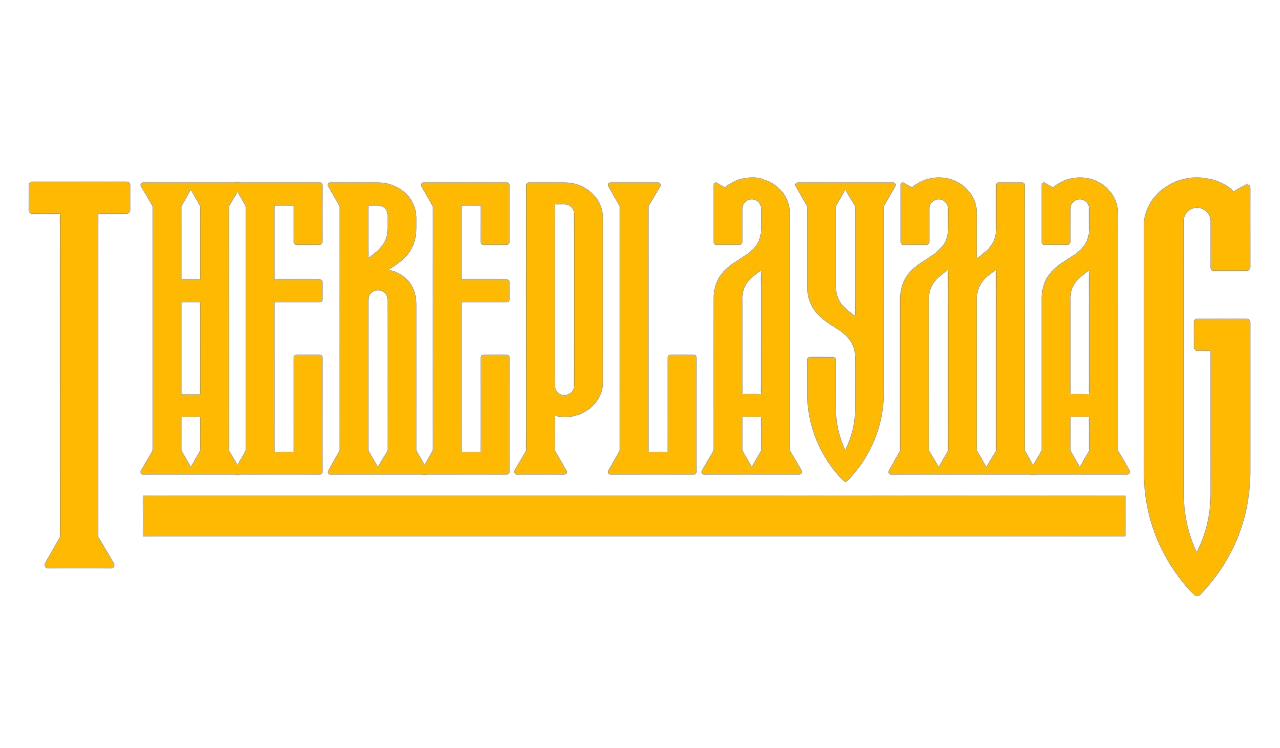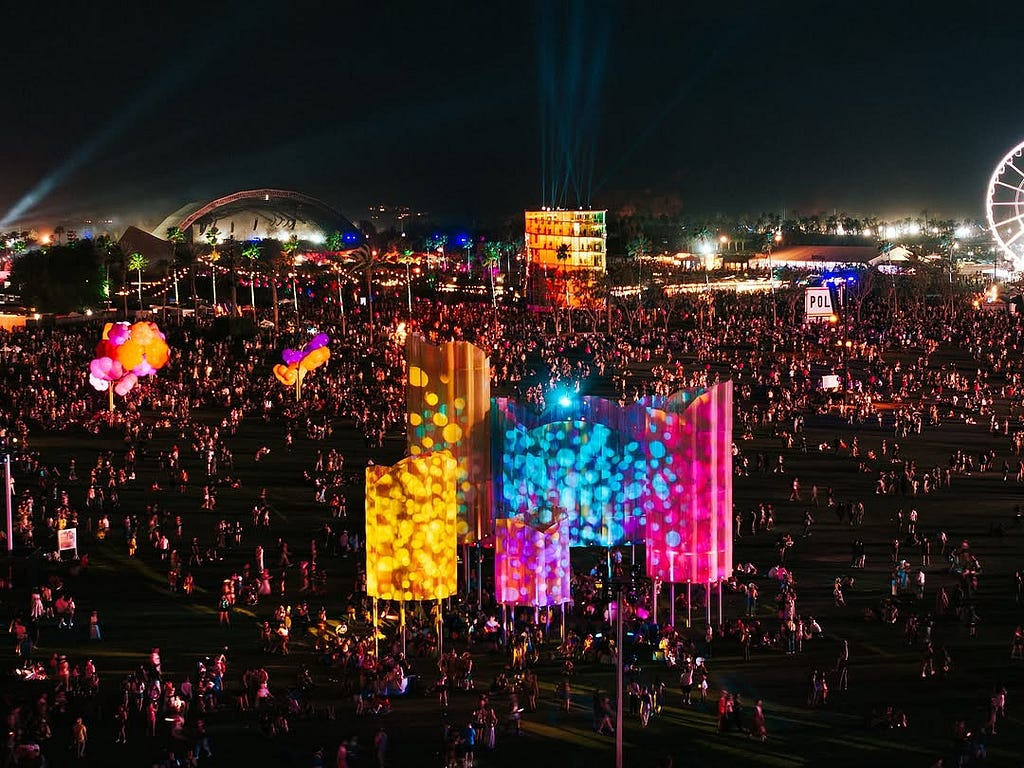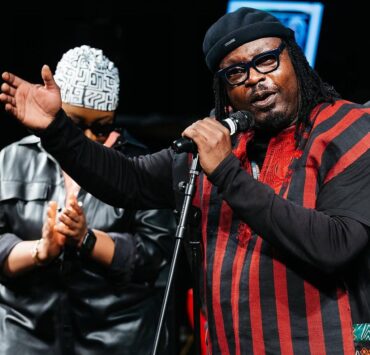FROM THE SANDY SHORES OF LAGOS TO THE DESERT SANDS OF COACHELLA: AFROBEATS’ UNSTOPPABLE RISE
The desert heat of Indio, California, might seem worlds away from the vibrant pulse of Lagos, Accra, or Johannesburg, but in recent years, the Coachella Valley Music and Arts Festival has become a crucial stage showcasing the meteoric rise of African music, particularly Afrobeats. The announcement for the 2025 festival, featuring Nigeria’s Rema and Seun Kuti, South Africa’s Tyla, and Ghana’s Amaarae, alongside the powerful performances in 2024 by Tems, Tyla, and DJ Spinall, confirms it: African artists aren’t just guests at the global music party anymore; they are becoming essential head-turners, reflecting a seismic shift in the world’s listening habits.
Coachella: A Brief History of the Desert Festival
Before diving into the African wave, it’s worth remembering what Coachella represents. Officially founded in 1999 by Paul Tollett and Rick Van Santen, the festival emerged from a legendary 1993 Pearl Jam concert held at the Empire Polo Club in Indio, California. After an initial outing and skipping the year 2000, Coachella returned in 2001 and quickly established itself. Initially rooted in rock and indie music, it evolved over two decades into a multi-weekend, multi-genre colossus. Beyond the music, Coachella is a cultural touchstone known for its signature fashion, large-scale art installations, celebrity sightings, and its undeniable status as a highly influential global event where music trends are often amplified.
Afrobeats: A Global Sound Takes Root
The increasing presence of African artists at Coachella doesn’t happen in a vacuum. It runs parallel to the explosive global growth of Afrobeats. While owing a debt to Fela Kuti’s pioneering Afrobeat (note: no ‘s’), the modern Afrobeats sound, born in the early 2000s in Ghana and Nigeria, is a dynamic fusion. It blends West African highlife and jùjú music with elements of hip hop, R&B, dancehall, and more, creating an infectious, rhythm-driven soundscape.
Its global journey accelerated rapidly in the mid-to-late 2010s and into the 2020s and it wasn’t accidental; it was driven by a confluence of powerful factors. Initially, the African diaspora played a crucial role, with communities abroad passionately championing and sharing the sounds of their homelands, creating crucial early buzz in international hubs. This grassroots energy was then supercharged by the explosion of streaming power. Platforms like Spotify, Apple Music, and Audiomack effectively dismantled geographical barriers, granting unprecedented global access to catalogues of Nigerian and Ghanaian music, allowing curious listeners anywhere to dive in.
This new found accessibility directly fuelled the phenomenon of viral hits. Tracks that might have once remained regional successes suddenly caught fire globally – Wizkid and Tems’ sultry “Essence”, CKay’s infectious “Love Nwantiti”, Rema’s ubiquitous “Calm Down”, and Burna Boy’s melancholic anthem “Last Last” became inescapable online and on airwaves worldwide, proving the sound’s universal appeal. Amplifying this reach further were high profile collaborations such as Drake’s Wizkid feature on chart-topping “One Dance” or Justin Bieber jumping on the remix of “Essence”. These served as powerful endorsements, introducing Afrobeats to massive mainstream audiences.
What followed was the established music industry took decisive notice. Major labels increasingly began signing Afrobeats artists, investing in their international careers, while prestigious award bodies acknowledged the genre’s significance, culminating landmark moments like the Recording Academy adding the “Best African Music Performance” category to the Grammys in 2024.
Coachella’s Growing Roster
Coachella’s lineups serve as a barometer of global music relevance. While this is not an exhaustive list, the African artists gracing its stages, particularly in recent years, highlights the growing global relevance of Afrobeats.
• Seun Kuti & Egypt 80 (Nigeria): One of the earliest Nigerian headliners, bringing Fela’s legacy to the desert back in 2012, and returning in 2025.
• Black Coffee (South Africa): The House music titan has represented South Africa’s vibrant electronic scene.
• Burna Boy (Nigeria): His 2019 performance was a landmark moment. Famously, he called out the festival for the small font size used for his name on the poster, declaring himself an “African Giant” – a moment reflecting both pride and the ongoing fight for recognition on global platforms.
• Mr Eazi (Nigeria): A key figure in the Banku music strand of Afrobeats, performing around 2019.
• CKay (Nigeria): Brought his global hit “Love Nwantiti” to the Coachella stage in 2022.
• Uncle Waffles (South Africa): Made history in 2023 as the first Amapiano artist to perform, introducing the log drum sound to a massive international audience.
• Mdou Moctar (Niger): Showcased Tuareg guitar mastery in 2024.
• Tems (Nigeria): Had a major moment in 2024, including bringing out Wizkid and Justin Bieber for a performance of the global smash “Essence.”
• DJ Spinall (Nigeria): Represented the crucial role of DJs in the Afrobeats ecosystem in 2024.
• Tyla (South Africa): Rode the wave of her global hit “Water” onto the 2024 stage and is set for a return in 2025.
• Amaarae (Ghana): Set to be the first Ghanaian act to perform at Coachella in 2025, bringing her unique Alté-infused sound.
• Rema (Nigeria): Following the world-conquering success of “Calm Down,” his 2025 debut is highly anticipated.
Global Stages vs. Homegrown Glory?
Undeniably, securing a spot at Coachella is a significant achievement. It offers unparalleled visibility, validation on a global scale, and opens doors to wider audiences and opportunities. It confirms that Afrobeats and other African genres aren’t niche interests but powerful forces in contemporary music.
However, as we celebrate these international triumphs, a pertinent question arises for the culture. While conquering global stages like Coachella is monumental, should the primary focus and aspiration lie elsewhere? Africa hosts its own vibrant and growing festival scene – events like AfroFuture (Ghana), Felabration (Nigeria), Mawazine (Morocco), MTN Bushfire (Eswatini), Rocking the Daisies (South Africa), Sauti za Busara (Zanzibar), and Lake of Stars (Malawi), among others.
Is the ultimate goal to gain entry and validation from established Western platforms, or should the ambition be to elevate these homegrown African festivals to achieve the same – or even greater – global prestige, economic impact, and cultural influence as Coachella? Where does the future of African music truly lie – in seeking affirmation abroad, or in building self-sufficient cultural powerhouses on the continent that draw the world to Africa?

What's Your Reaction?
Lover of Music, Food, Sports and anything nice. Not a good writer but a good messenger.



